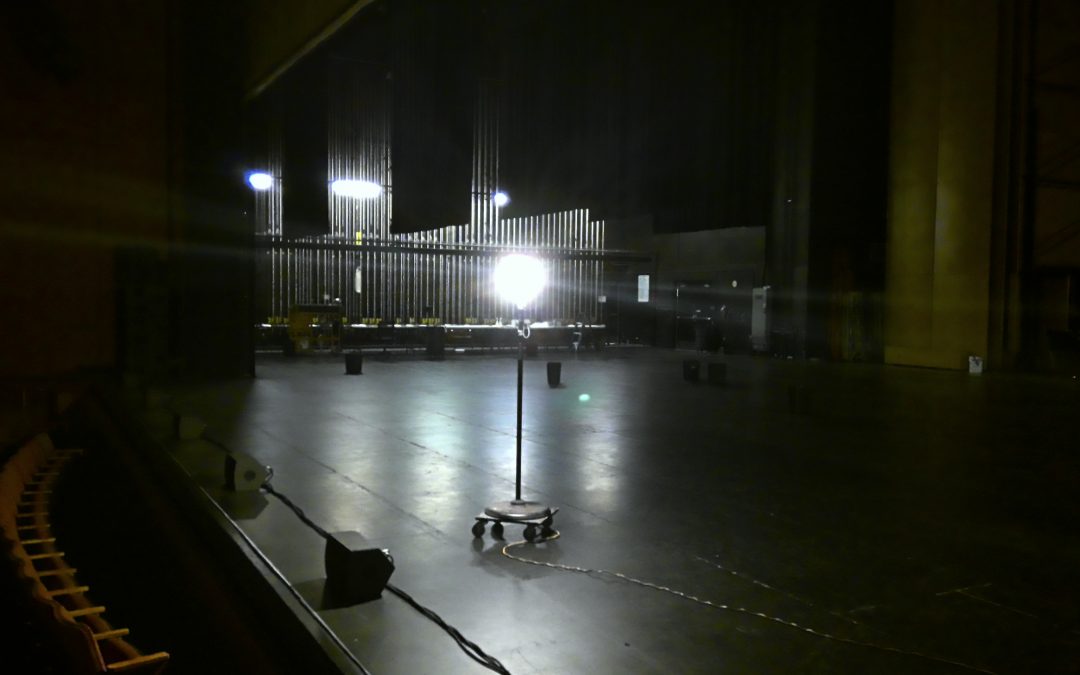by Stephanie Wilson, Deputy Director, New West Symphony
Theatres are very superstitious places. The drama and music in theatres is only the accompaniment to the tradition and lore that thrive anyplace where there’s a stage.
This is about the ghost light.
In the 1800’s, theatres would often burn down because the gas lines built up pressure and ‘exploded’, so theatre managers discovered that if they left one light on, the gas could continue to flow. That ghost light served another practical purpose. If one entered a dark theatre, there was less chance that they might fall into the pit and, well, you get the idea.
Today, nearly every theatre in the world (well, at least every theatre who knows what’s right!) places a single, unadorned stand with a bare bulb on the stage. It’s turned on when the last person leaves and closes that stage door with a thud behind them. It’s comforting to know that light is there, even if the theatre is dark.
Theatres don’t like to be dark. “Dark” means no ticket buyers, no tears and laughter, just a void to everyone from producer to actor to playwright. We don’t want our theatres to ever be ‘dark’. Some say, the ghost light prevents the theatre from being truly dark.
Others say, the light is there to keep away the theatre ghosts. As we all know, every theatre has a ghost, and most of us embrace our theatre ghosts. They’re fun to blame when things go wrong and they’re just as comforting as the ghost light.
I believe the light is there to keep the theatre ghosts happy. Perhaps they like it when we all leave and they can have the place to themselves. In the welcomed silence they can belt their arias, whisper their soliloquies, perfect their pas seul.
So, thank you to the ghost lights all over the world and to the ghosts who attend to our theatres. I hope you are performing your greatest pieces to empty houses that will soon be full again.

